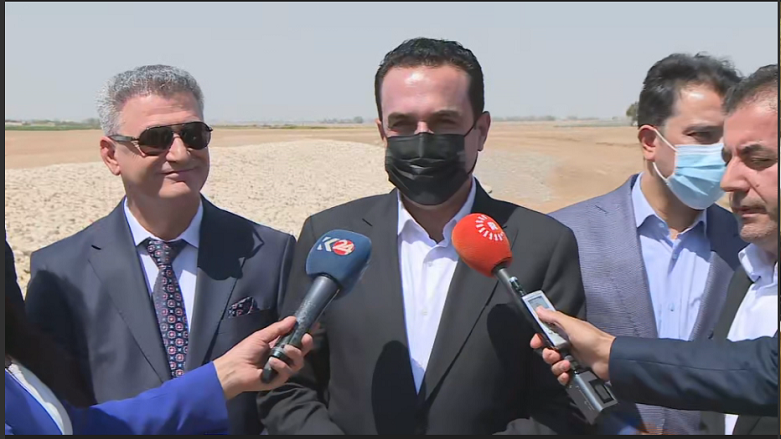Erbil builds four water ponds amid water crisis

ERBIL (Kurdistan 24) – The Kurdistan Regional Government decided to establish four water ponds in Erbil province to mitigate the effects of the water crisis.
"The construction of two new ponds and rehabilitation of two old ponds in cooperation with UNICEF will have a positive impact on the water crisis we are facing and will benefit livestock farmers and agriculture,” Omid Khoshnaw, governor of Erbil said in a press conference.
He also said that the Kurdistan Regional Government, within the framework of facing climate change, and concerning drought years, is preparing to build several dams, adding, "we thank UNICEF for its contribution to the establishment of these projects."
Khoshnaw also noted that the financial cost of establishing two ponds and rehabilitate two old ones will amount to $230,000.
Khoshnaw also mentioned that the capacity of each water pond will reach 25,000 to 30,000 cubic meters of water.
The governor explained that “each year there is a lot of rain in Kurdistan Region, however without proper storage for the rainwater it will just go to waste, so the aim of these ponds and small dams is to save that water, use it for livestock, farming and to increase underground water.”
On the impact of the drought this year due to the lack of rainfall, Khoshnaw said that the percentage of underground water in Erbil decreased to about 50-60 meters, indicating that the most affected areas in Erbil are Qushtapa area, which the depth of drilling one well reached 670 meters below the ground.
Khoshnaw had announced at the beginning of July that more than 200 water wells in the province had stopped working, calling on the population to rationalize consumption and prevent water wastage in light of the drought in the Kurdistan Region and Iraq in general.
Erbil province depends on 35 percent of the waters of springs and running rivers, and 65 percent on underground water.
